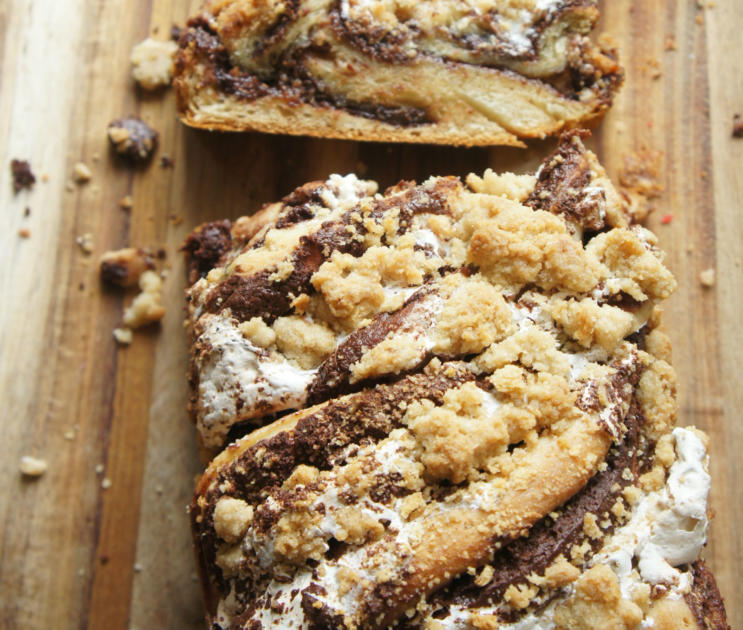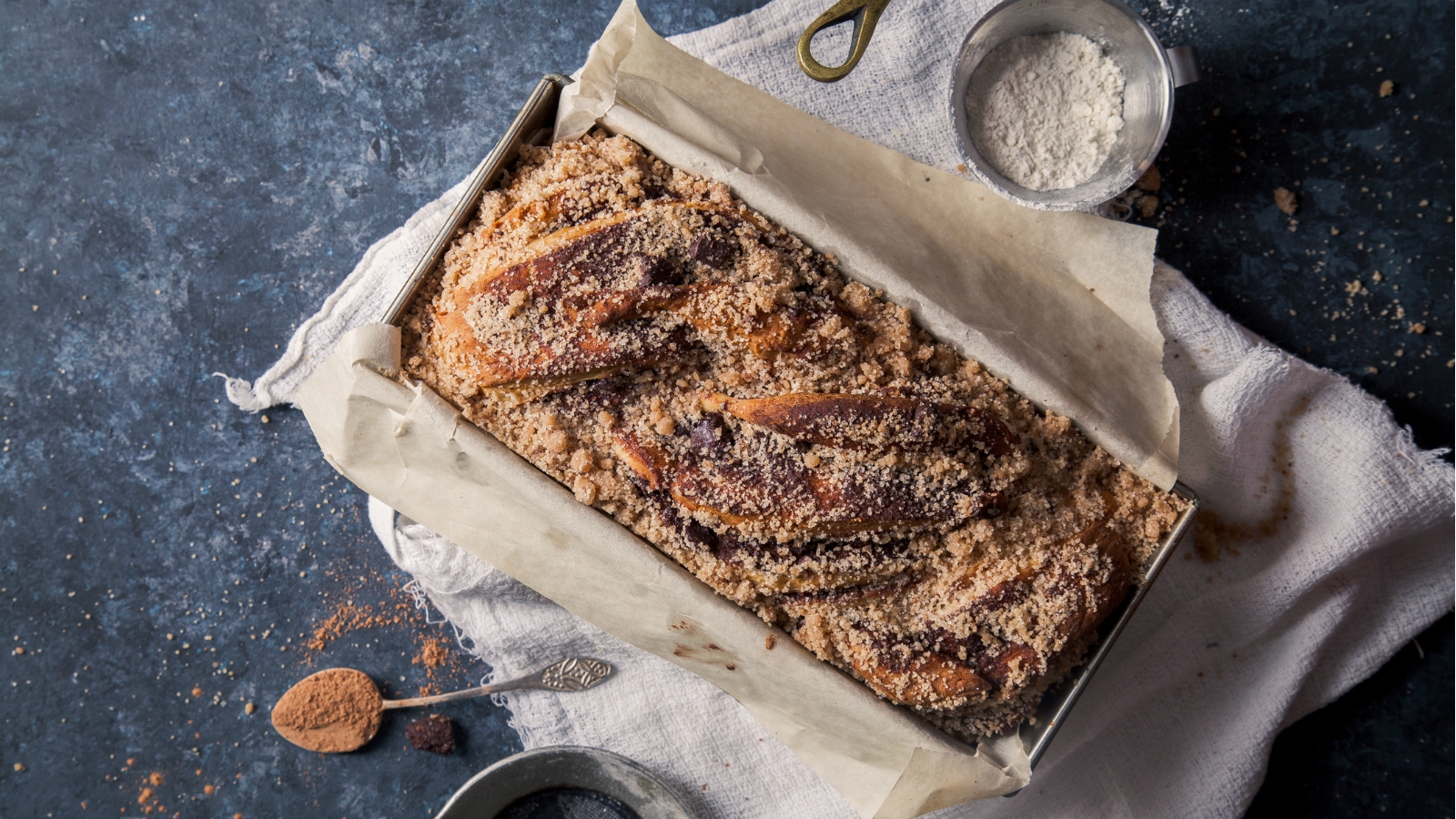Part bread, part cake, and totally delicious: babka is among the most iconic Jewish sweets and a common fixture at the dessert table of religious celebrations. Culinary historians credit Polish cooks with its creation and in the late 19th century a wave of emigrants from that and other central European countries brought babka with them to the United States, where it became a staple ware in Jewish bakeries. In its most traditional form, babka is made by twisting a yeast-based dough swathed in different fillings around itself into a tortuous loaf that is baked at medium heat for around an hour. The top of the babka may be dusted with streusel or seeds and warm syrup sometimes serves as a final garnish. Different nations in the Jewish diaspora add their own inflections; for example, in Israel butter is incorporated into the dough as to produce a flakier, more delicate crumb, and babkas may be parceled into individual smaller portions prior to the baking process.
Babka was eternally memorialized in pop culture in a 1994 episode of Seinfeld in which Jerry and Elaine camp out at Royal Bakery (based on real-life Royale Pastry Shop in NYC) to wait their turn to buy a babka to take to a dinner party. When they finally reach the head of the queue only to learn the bakery is flush out of chocolate babka, Jerry is convinced by the attendant to purchase a cinnamon variant, which Elaine deems a “lesser babka.” He valiantly defends its potential merits, noting “Cinnamon takes a back seat to no babka. People love cinnamon. It should be on tables at restaurants along with salt and pepper.”

Although most establishments like Royal Bakery limit their offerings to the most popular flavors (chocolate, cinnamon-sugar, apples, raisins) the past decade has seen the rise of innovative recipes on the internet for babkas filled with sweet potato, goat cheese, cherries, and, (irony noted), bacon chocolate butterscotch.
The Nosher celebrates the traditions and recipes that have brought Jews together for centuries. Donate today to keep The Nosher's stories and recipes accessible to all.
If you’re eager to meander off the beaten babka path yet less eager to test your home baking skills, add Breads Bakery to the top of your foodie destination bucket list. Their rotating selection of sophisticated babkas include a cheesecake, apple almond, and raisin walnut babkas and, in holidays past have even made “Fall Harvest,” and laced with zucchini, browned onions, and Gruyère cheese, and, a chocolate babka pie.
Similar to the fate of the humble knish, many bakeries devoted to specializing in babkas have all but disappeared. Hope for the reversal of this trend briefly flickered then faded in California when Babka by Ayelet opened in 2018 in Palo Alto. Its haute sweet and savory babka iterations, which included raspberry cream cheese, Nutella, and tomato mozzarella, made it an immediate darling of the local media but unfortunately it closed in February of this year due to a real estate dispute. Fortunately, it seems the bakery is down but not for the count, for its intrepid master pastry chef and owner Ayélet Turgeman Nuchi is still making babkas that can be specially ordered online and has plans to re-open upon securing another area location.
Those storied babka purveyors that remain are mostly family-owned shops in New York City, such as Williamsburg’s Green’s Bakery and Oneg Heimische Bakery and the East Village’s Russ & Daughters. Craving babka but don’t live in the Big Apple? Well, you don’t have to fuhgettaboutit because all of the aforementioned deliver nation-wide through Goldbelly (though check availability regularly due to COVID-19 safety concerns).




